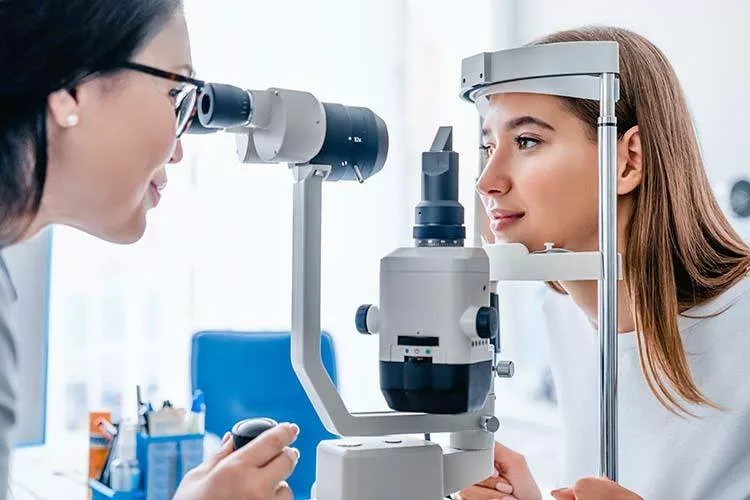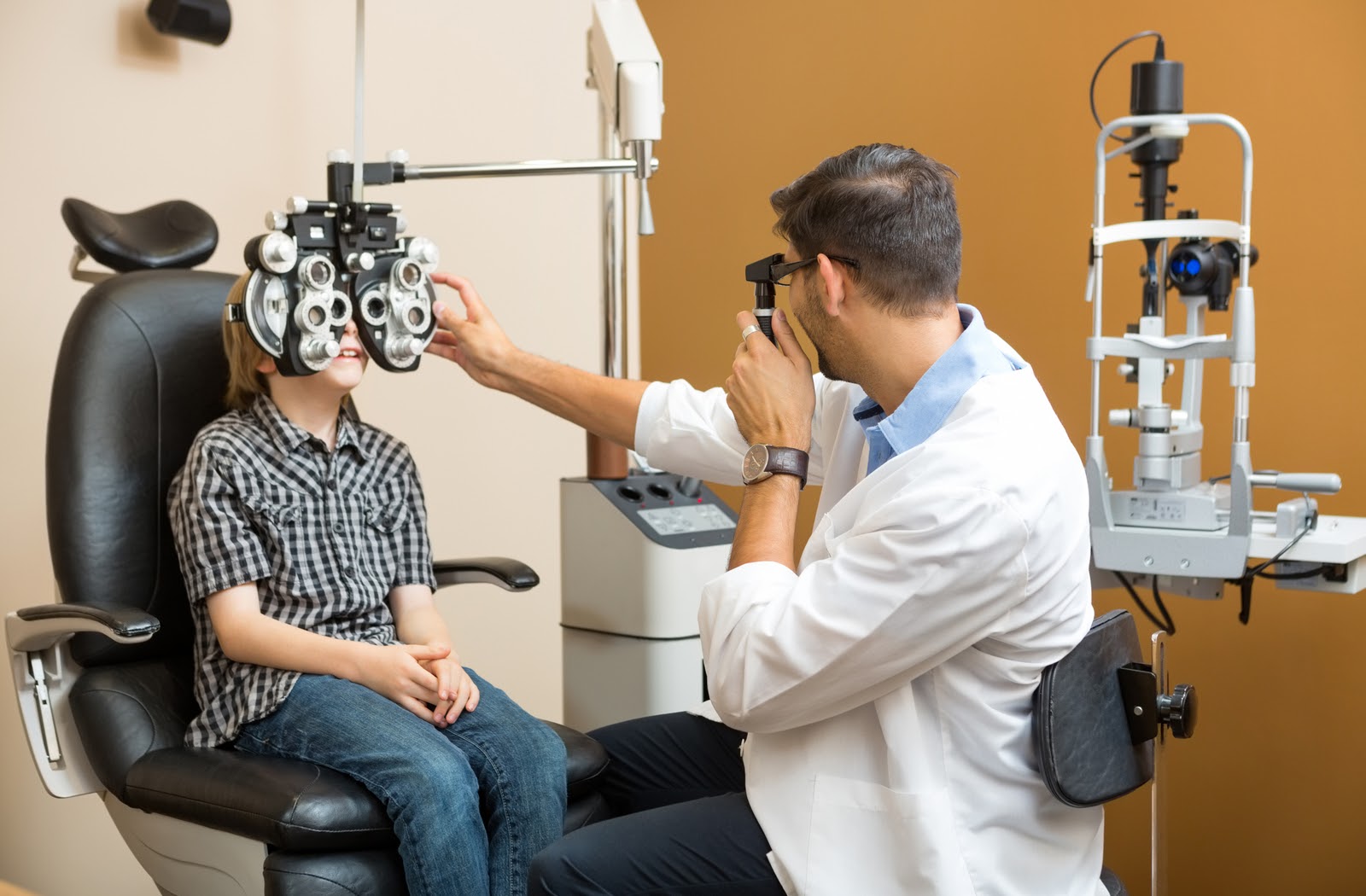How an Ophthalmologist Can Aid Prevent and Manage Common Vision Problems Efficiently
The duty of an ophthalmologist prolongs far beyond merely prescribing glasses; it includes a comprehensive method to avoid and managing numerous vision problems. Routine eye tests are necessary for early discovery of conditions like refractive mistakes and glaucoma, enabling timely treatments that can considerably enhance quality of life. By establishing individualized therapy plans and offering support on preventative care approaches, eye care specialists make sure that patients are outfitted to preserve optimal eye health and wellness. However, the nuances of their technique and the latest improvements in eye care might question concerning best techniques and prospective end results.
Relevance of Routine Eye Exams

Furthermore, routine eye exams can expose systemic wellness issues, consisting of diabetes mellitus and hypertension, as the eyes usually reflect adjustments in overall health and wellness. Developing a routine timetable for eye exams, normally every one to 2 years, allows for prompt interventions and can aid preserve vision.
People in certain age or with specific risk variables, such as a family history of eye condition or persistent health conditions, might profit from more regular evaluations. By focusing on these appointments, clients can guarantee they get personalized care tailored to their special demands. Ultimately, regular eye examinations play an essential duty in both preventative and proactive eye care, allowing people to preserve their lifestyle and aesthetic function.
Early Detection of Vision Problems
Early discovery of vision problems is essential for effective administration and treatment, as punctual intervention can dramatically reduce the progression of eye conditions. Regular eye examinations serve as an important tool in determining prospective problems prior to they rise into more extreme problems. Eye physicians utilize different diagnostic techniques to analyze aesthetic acuity, eye alignment, and total eye health and wellness, enabling them to find problems at an onset.
Common vision troubles, such as refractive errors, cataracts, and glaucoma, might not provide recognizable signs and symptoms originally. For that reason, routine testings are important for individuals of any ages, specifically those with a family history of eye disorders or other risk elements. Early identification permits for prompt recommendations to professionals and can lead to far better results, reducing the chance of issues.
Furthermore, advancements in innovation have boosted the capability to diagnose problems early, therefore boosting the effectiveness of succeeding treatments. Clients should be aggressive in organizing routine check-ups and connecting any type of modifications in their vision to their eye care company. By prioritizing early discovery, individuals can take significant strides towards protecting their vision and maintaining general eye wellness.
Personalized Treatment Plans
When vision troubles are determined, the formula of personalized treatment plans comes to be necessary to address the special requirements of each person. Ophthalmologist use thorough assessments, consisting of aesthetic acuity tests, refraction analyses, and ocular health assessments, to gather essential information concerning a patient's particular problems. This data assists in designing targeted interventions that straighten with the individual's lifestyle, choices, and general health and wellness status.
Customized therapy plans may include a variety of alternatives, including restorative lenses, drugs, or progressed therapies tailored to specific conditions such as glaucoma, macular degeneration, or diabetic person retinopathy. Additionally, the inclusion of instructional parts is essential, as patients are notified concerning their conditions and the reasoning behind the chosen therapy approaches. This collective technique fosters a greater feeling of possession and adherence to the treatment routine.
Additionally, follow-up visits are vital for keeping track of progress and making modifications as necessary. By focusing on individualized therapy plans, eye care professionals can not just boost the performance of treatments but likewise improve the general lifestyle for their individuals, empowering them to handle their vision wellness proactively and effectively.
Preventive Care Approaches
Preventative treatment techniques play a vital function in preserving ideal eye health and wellness and avoiding the onset of vision troubles. Routine eye examinations are fundamental, as they permit eye treatment experts to detect possible problems early, also prior to signs manifest. These assessments can determine refractive errors, cataracts, and glaucoma, enabling timely intervention.
In enhancement to regular appointments, taking on a healthy way of life considerably adds to eye health. A balanced diet regimen rich in vitamins A, C, E, and omega-3 fatty acids can boost visual function and minimize the risk of age-related macular deterioration. Moreover, protecting the eyes from dangerous ultraviolet (UV) rays by wearing sunglasses with appropriate UV protection is essential in protecting against problems like cataracts.
Regularly engaging in physical activity also promotes overall health, consisting of eye wellness. By implementing these preventative treatment strategies, individuals can substantially improve their eye wellness and lower the chance of creating significant vision troubles.

Function in Handling Chronic Conditions
Taking care of persistent conditions frequently requires a joint technique, and eye physicians play an important function in this process. Many systemic diseases, such as diabetes and hypertension, have substantial eye effects that can affect vision. Eye physicians are important in surveillance and managing these conditions, as they can identify early indications of complications that may not be noticeable to the client or health care copyright.
As an example, diabetic person retinopathy is a common repercussion of unmanaged diabetes, and regular eye examinations can promote very early read treatment, stopping serious vision loss. Ophthalmologist can likewise supply tailored guidance relating to way of living adjustments and essential medical references to guarantee extensive patient care.
Furthermore, problems like autoimmune problems might reveal eye symptoms, necessitating an ophthalmologist's proficiency in both vision care and the underlying systemic problems. eye doctor. By functioning carefully with health care physicians and other specialists, ophthalmologist help coordinate treatment methods that encompass both overall and visual visit homepage health

Verdict
In final thought, the role of an eye medical professional is essential in protecting against and taking care of typical vision problems. Through the execution of preventative treatment techniques and persistent administration of persistent problems, eye physicians add dramatically to the improvement of overall vision wellness.
By creating customized treatment strategies and providing guidance on preventative treatment techniques, eye care professionals make sure that clients are outfitted to maintain optimum eye health and wellness.Regular eye tests are vital for keeping ideal vision and total eye health. Throughout an eye examination, an eye treatment professional assesses visual skill, assesses the health and wellness of the eyes, and may execute examinations to examine for problems such as glaucoma, cataracts, and macular degeneration.
Eye physicians use numerous analysis strategies to analyze visual skill, eye alignment, and general eye health, enabling them to identify irregularities at an early phase.
Regular eye evaluations see it here are essential, as they enable eye care experts to find possible concerns early, also prior to signs and symptoms reveal. (eye doctor)